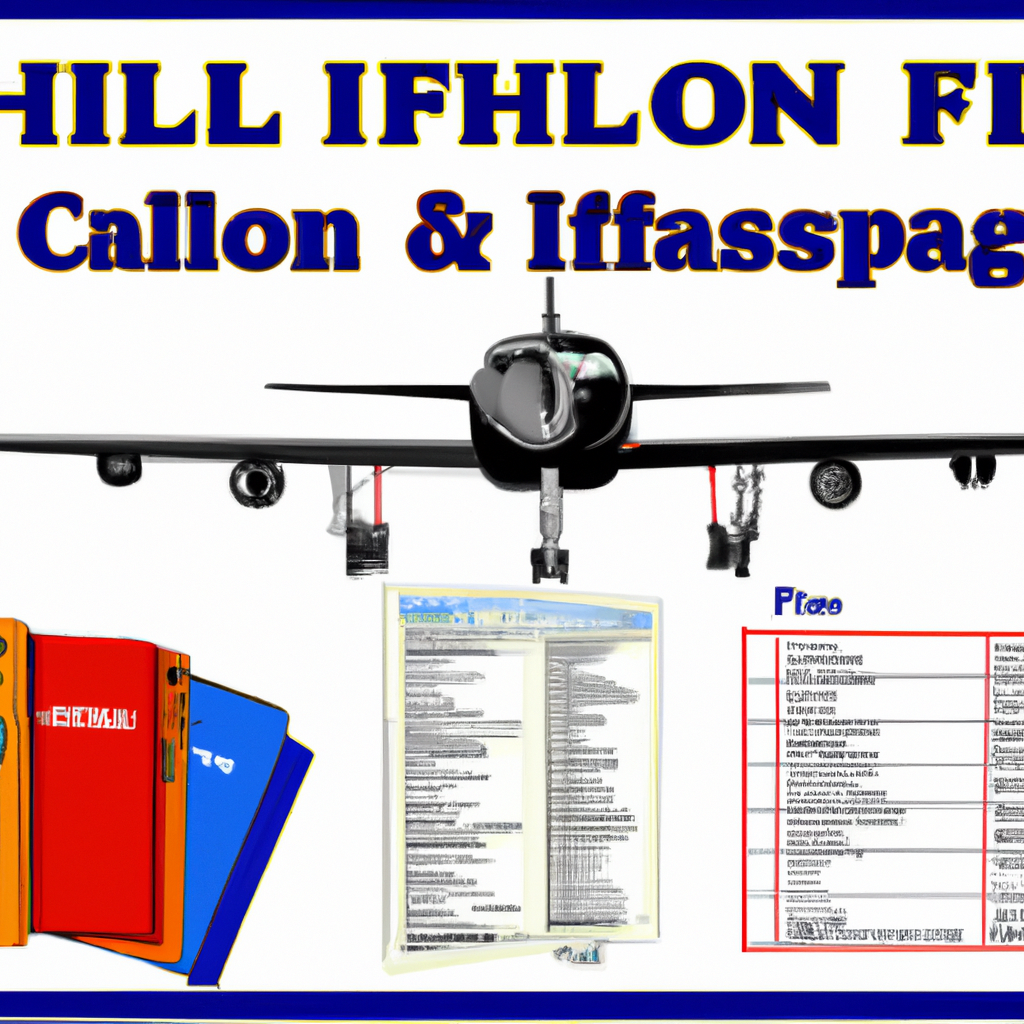
So you’ve always dreamed of soaring through the clouds as a pilot, but you’re worried about the hefty price tag that comes with flight school. Well, fear not, because there’s a financial solution that could help you turn your dream into a reality. In this article, we’ll be exploring the ins and outs of how to finance pilot training using the GI Bill. Whether you’re a veteran or an active-duty service member, this government benefit has the potential to cover a significant portion, if not all, of your flight school expenses. So buckle up and get ready to learn how to take flight without breaking the bank.
Pilot Training Eligibility under the GI Bill
Eligibility criteria for the GI Bill
Before exploring the various benefits and options under the GI Bill for pilot training, it’s important to understand the eligibility criteria. To qualify for the GI Bill, you must have served at least 90 days of active duty service after September 10, 2001. Additionally, you must have received an honorable discharge or were discharged due to a service-related disability. Veterans who are still on active duty can also be eligible for certain benefits.
Types of pilot training covered by the GI Bill
The GI Bill provides financial assistance for various types of pilot training programs, including private pilot licenses, instrument rating courses, commercial pilot certifications, and even instructor pilot training. Whether you’re interested in fixed-wing aircraft or helicopters, there are training options available under the GI Bill to help you achieve your aviation goals.
Benefits offered by the GI Bill for pilot training
The benefits provided by the GI Bill for pilot training are extensive and can greatly aid in financing your education. These benefits can include covering the cost of tuition and fees, providing a housing allowance, and supplying a stipend for books and supplies. The GI Bill is designed to assist military veterans in obtaining the education and training they need for successful careers in their chosen fields, including aviation.
Choosing the Right Pilot Training Program
Researching different pilot training programs
As you embark on your journey to become a pilot, it’s crucial to research and evaluate different pilot training programs. Look for reputable schools that are accredited and have a strong track record of producing skilled pilots. Take the time to read reviews from previous students and gather information on the instructors, curriculum, and facilities. Researching different programs will help you make an informed decision about which one best suits your needs and goals.
Accreditation and certification
When choosing a pilot training program, it’s important to ensure that the program is accredited and certified by the appropriate aviation authorities. Accreditation ensures that the program meets specific standards of quality and provides you with the necessary training to become a competent pilot. Certification, on the other hand, indicates that the program meets the requirements set by the Federal Aviation Administration (FAA). By selecting a program that is both accredited and certified, you can have confidence in the quality of education you will receive.
Evaluating program costs and financial aid options
Financing pilot training can be a significant investment, and it is essential to evaluate program costs and explore all available financial aid options. When comparing program costs, consider tuition, fees, and any additional expenses such as housing and equipment. Additionally, take the time to investigate the financial aid options available, such as scholarships, grants, federal student aid programs, and private loans. By thoroughly evaluating program costs and exploring different financial aid avenues, you can make an informed decision about how to finance your pilot training.

Understanding the GI Bill Benefits for Pilot Training
Available GI Bill programs
Several GI Bill programs can provide financial assistance for pilot training. The two main programs are the Montgomery GI Bill (MGIB) and the Post-9/11 GI Bill. The MGIB is available to veterans who served on active duty and made contributions to the program during their military service. The Post-9/11 GI Bill is available to veterans who served at least 90 days on active duty after September 10, 2001, or were honorably discharged due to a service-related disability. Understanding the specific eligibility requirements and benefits of these programs is crucial in utilizing the GI Bill for pilot training.
Amount of financial assistance provided
The amount of financial assistance provided under the GI Bill for pilot training depends on several factors, such as the type of training pursued and the length of the program. The GI Bill can cover up to 100% of tuition and fees for in-state students attending public institutions, with a maximum annual cap for private institutions. Additionally, the GI Bill provides a housing allowance based on the location of the training program and a stipend for books and supplies. Understanding the amount of financial assistance you can receive will help you plan and budget for your pilot training.
Duration of benefits
The duration of GI Bill benefits for pilot training varies depending on the specific program and eligibility requirements. Under the Montgomery GI Bill, benefits are typically available for a period of 10 years from the date of eligibility. For the Post-9/11 GI Bill, benefits generally remain active for 15 years from the veteran’s last release from active duty. It’s important to understand these timeframes and plan your pilot training accordingly to ensure you can maximize the benefits available to you.
Applying for GI Bill Benefits
Eligibility and application process
To apply for GI Bill benefits for pilot training, you must first meet the eligibility requirements outlined by the Department of Veterans Affairs (VA). This includes meeting the minimum service requirements and having an honorable discharge or a discharge due to a service-related disability. The application process involves completing and submitting the necessary forms to the VA, such as the Application for VA Education Benefits (Form 22-1990). It’s essential to familiarize yourself with the eligibility criteria and follow the application process diligently to ensure a smooth application experience.
Required documentation
When applying for GI Bill benefits, you will need to provide certain documentation to verify your eligibility and support your application. This may include a copy of your DD-214 (Certificate of Release or Discharge from Active Duty) or other discharge papers, as well as any supporting documentation related to your service-related disability if applicable. It’s crucial to gather and organize all required documentation before starting the application process to avoid delays or complications.
Processing time and approval
The processing time for GI Bill benefit applications can vary depending on factors such as the volume of applications and the time of year. It’s important to be patient during this process, as it may take several weeks or even months for your application to be reviewed and approved. The VA will notify you of their decision and inform you of the benefits you are eligible to receive. If additional information or documentation is needed, be prompt in providing it to avoid further delays.

Navigating Post-9/11 GI Bill Benefits
Key features and requirements
The Post-9/11 GI Bill offers several key features and requirements that veterans should be aware of when considering pilot training. One notable feature is the ability to transfer unused benefits to dependents, allowing them to pursue their own educational endeavors. The eligibility requirements for transferring benefits vary, so it’s important to familiarize yourself with the specific guidelines set by the Department of Defense. By understanding the key features and requirements of the Post-9/11 GI Bill, you can maximize its benefits for both yourself and your family.
Tuition and fee payments
Under the Post-9/11 GI Bill, the VA will make direct payments to the institution for tuition and fees. The amount paid is determined by the veteran’s level of eligibility and the maximum in-state tuition rate for public institutions. For private and foreign schools, a national maximum cap is set each academic year. It’s important to familiarize yourself with the payment process and the requirements for schools to receive these funds, as this will have a significant impact on your financial arrangements during pilot training.
Housing and supply allowances
In addition to tuition and fee payments, the Post-9/11 GI Bill provides a monthly housing allowance and a stipend for books and supplies. The housing allowance is based on the location of the training program and the number of applicable credit hours. The book and supply stipend is a set annual amount that is prorated based on the number of credit hours taken each term. These additional allowances can greatly assist in covering the costs associated with housing and educational materials during your pilot training journey.
Additional Financial Aid Options
Scholarships and grants
In addition to GI Bill benefits, there are various scholarships and grants available specifically for pilot training. These financial aid options can provide additional funding to supplement the GI Bill benefits or cover expenses not covered by the GI Bill. Many organizations, such as aviation associations and foundations, offer scholarships to aspiring pilots. It’s essential to research and apply for these opportunities to maximize your financial aid and ensure a smooth transition into pilot training.
Federal student aid programs
Federal student aid programs, such as Pell Grants and Federal Work-Study, can also provide financial assistance for pilot training. Pell Grants are need-based grants awarded to undergraduate students, while the Federal Work-Study program provides part-time employment opportunities to help students cover educational expenses. By exploring these federal student aid programs, you may discover additional avenues for financial support beyond the GI Bill.
Private loans and financing
If you still require additional financing for your pilot training after exploring scholarships, grants, and federal student aid programs, private loans and financing options are available. Many banks and financial institutions offer loans specifically for aviation education and training. It’s important to thoroughly research and compare the terms, interest rates, and repayment options offered by different lenders to find the best fit for your situation. While loans should be approached with caution, they can provide a viable option for financing the remaining expenses of your pilot training.
Maximizing GI Bill Benefits for Pilot Training
Using benefits efficiently
To maximize your GI Bill benefits for pilot training, it’s crucial to use them efficiently and effectively. This involves carefully planning your training timeline and taking advantage of the benefits available to you in a strategic manner. By effectively utilizing your benefits, you can ensure that they cover as much of your pilot training expenses as possible and minimize out-of-pocket costs.
Taking advantage of tuition reimbursement
Some aviation employers offer tuition reimbursement programs as part of their employee benefits package. By securing a job with an employer who provides tuition reimbursement, you can potentially have a portion or all of your pilot training expenses refunded to you. Research aviation companies that offer this benefit and explore potential employment opportunities to maximize your financial assistance.
Transfer of benefits to dependents
If you have unused GI Bill benefits, you may have the option to transfer them to your dependents. This can provide a valuable educational opportunity for your spouse or children. However, it’s important to carefully consider the implications of transferring your benefits, as certain service commitment requirements must be met. By exploring the option of transferring benefits, you can potentially provide educational support for your family members while pursuing your own pilot training dreams.
Military Service Obligations for GI Bill Benefits
Service commitment requirements
When utilizing the GI Bill benefits for pilot training, it’s important to understand the service commitment requirements associated with the benefits. The Post-9/11 GI Bill requires veterans to serve at least 36 months on active duty or obtain a service-related disability discharge to receive full benefits. If you do not meet these requirements, your benefits may be prorated. It’s crucial to be aware of these service commitment requirements and plan your pilot training accordingly to avoid any unexpected changes to your benefits.
Implications on pilot training timeline
The military service obligations associated with the GI Bill benefits can have implications on your pilot training timeline. Depending on the length of your service commitment, you may need to plan your training around your military obligations. This may involve completing your training part-time, delaying your training start date, or coordinating with your military unit to ensure you can fulfill both your service requirements and your pilot training goals. By carefully considering the impact of your military service obligations, you can effectively plan and navigate your pilot training journey.
Reserve and National Guard considerations
If you are a member of the Reserve or National Guard, it’s important to understand how your service status may affect your GI Bill benefits and pilot training opportunities. Reservists and National Guard members may be eligible for certain GI Bill programs with specific requirements and benefits. Additionally, their service commitments and training obligations may differ from those on active duty. It’s crucial to reach out to your unit’s education office or a VA representative to gain a clear understanding of the benefits and considerations related to pilot training as a reservist or National Guard member.
Success Stories: Financing Pilot Training with the GI Bill
Profiles of individuals who successfully financed pilot training
To inspire and provide insight into financing pilot training with the GI Bill, it’s helpful to share success stories of individuals who have gone through this process. These profiles can highlight the various paths and strategies employed by veterans to achieve their pilot training goals. By learning from these success stories, aspiring pilots can gain valuable perspectives and understand the possibilities available to them when financing their own pilot training.
Advice and insights from veterans in the aviation industry
Alongside success stories, it’s important to gather advice and insights from veterans who have already established careers in the aviation industry. These individuals can provide valuable guidance on navigating the pilot training journey, maximizing GI Bill benefits, and pursuing a successful aviation career. Their firsthand experiences and lessons learned can offer aspiring pilots in-depth perspectives and practical tips for overcoming challenges and achieving their goals.
Tips for a Smooth Transition to Pilot Training
Preparing for the training program
Before embarking on your pilot training journey, it’s essential to make preparations for a smooth transition. This may involve researching the specific requirements and expectations of the training program, ensuring you have the necessary physical and mental preparation, and gathering any required documentation or certifications. By thoroughly preparing ahead of time, you can approach your training program with confidence and set yourself up for success.
Managing personal finances during training
While the GI Bill and other financial aid options can greatly assist in financing your pilot training, it’s important to effectively manage your personal finances during this time. Create a budget that considers your income, expenses, and anticipated costs associated with pilot training. Be mindful of your spending habits and prioritize financial responsibility to ensure that you do not encounter financial hardships during your training.
Utilizing support services available
Throughout your pilot training journey, there are various support services available to assist you. These services can range from academic support, such as tutoring or study groups, to mental health resources to help manage the stress and challenges of the training program. Take advantage of these support services to maximize your learning opportunities and ensure a successful transition to becoming a pilot. Seek guidance when needed and actively engage in the resources provided to you.
In conclusion, financing pilot training with the GI Bill is an excellent opportunity for veterans to pursue their dreams of becoming pilots. By understanding the eligibility criteria, exploring different pilot training programs, and making informed decisions about financial aid options, veterans can make the most of the benefits provided by the GI Bill. By effectively navigating the application process, understanding the various features and requirements of the GI Bill, and making strategic choices regarding benefits, veterans can successfully finance their pilot training. With careful planning, utilization of support services, and adherence to military service obligations, veterans can maximize their GI Bill benefits and smoothly transition into pilot training.

